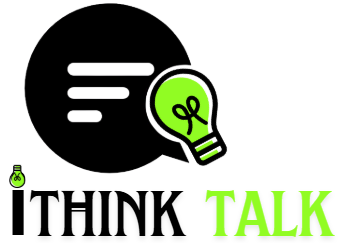So, you’re curious about a career in policy research and analysis? Whether you’re coming from academia, journalism, government, or consulting, the world of policy work can be both intellectually rewarding and socially impactful. But how do you actually get your foot in the door—especially if you’re not coming from a traditional policy background?
The good news is: you don’t need a political science PhD or years in Washington to break into the field. What you do need is a strategic mindset, a clear value proposition, and an understanding of how the policy world actually works behind the scenes.
Let’s walk through how to translate your existing skills into policy relevance—and map out the actionable steps to make your transition real.
1. Understand the Policy Ecosystem (It’s Bigger Than You Think)
Policy research isn’t limited to government agencies or Capitol Hill. Think tanks, nonprofits, academic research centers, philanthropic foundations, and even private sector consulting firms all shape public discourse and influence decision-making.
The term think tank jobs might sound niche, but think tanks themselves range from globally influential institutions like Brookings or RAND to small issue-specific shops working on education reform, climate policy, or tech governance.
Action Tip:
Start by mapping the types of organizations in the policy space. Use resources like:
- Think Tank Directory
- LinkedIn searches using “policy analyst,” “research associate,” or “fellow”
- Foundation Center or Charity Navigator to find funders of policy work
Understanding who’s doing what—and how they’re funded—is step one to identifying where you might fit in.
2. Identify Transferable Skills from Your Current Work
You probably already have skills that are highly relevant to policy analysis—you just might not be framing them that way yet. Here’s how to think about it based on your background:
From Academia:
- Literature reviews → Policy briefs and white papers
- Data analysis → Evidence-based recommendations
- Conference presentations → Public communication of research
From Journalism:
- Investigative research → Policy landscape analysis
- Interviewing → Stakeholder mapping
- Writing under deadline → Agile policy writing
From Government:
- Legislative tracking → Policy development
- Public administration → Implementation insights
- Interagency communication → Stakeholder engagement
From Consulting:
- Strategy memos → Policy recommendations
- Client deliverables → Policy impact reports
- Market analysis → Regulatory or demographic trend analysis
Action Tip:
Create a two-column chart. On the left, list your core tasks. On the right, reframe each one in policy language (e.g., “client pitch” becomes “policy advocacy memo”).
3. Learn How Policy Research Gets Funded (Follow the Money)
Policy research doesn’t happen in a vacuum. It’s driven by funding—often from foundations, governments, or philanthropic donors with particular priorities.
Understanding funding structures helps you:
- Spot emerging research priorities
- Predict job openings in certain sectors
- Tailor your pitch to show how your work aligns with funders’ goals
Action Tip:
- Read annual reports of think tanks or policy orgs
- Note which foundations or agencies are listed as sponsors
- Use tools like Candid.org or Grantmakers.io to explore who’s funding what
4. Tailor Your Resume Like a Policy Insider
Policy organizations read resumes differently than academia or corporate employers. They’re looking for:
- Clear writing
- Evidence of analytical thinking
- Understanding of policy mechanisms or legislative context
Even if you’re applying for entry-level think tank jobs, the way you present your experience matters.
Action Tip:
- Lead with accomplishments and impact, not job descriptions
- Use phrases like “authored policy brief,” “conducted policy-relevant research,” or “analyzed regulatory trends”
- Include any experience with public speaking, op-eds, or data visualization—these are golden in policy work
5. Network Like a Researcher, Not a Job-Seeker
One of the most effective ways into the policy world is through relationships. But don’t think of it as “networking” in the salesy sense. Think of it as relationship-building through curiosity and contribution.
How to do it well:
- Attend panel events or webinars hosted by think tanks or advocacy orgs
- Join policy-focused LinkedIn groups or alumni forums
- Reach out to early-career researchers for coffee chats or virtual calls
When you do connect, don’t immediately ask for a job. Instead, ask:
- “How did you break into policy work?”
- “What skills or experiences helped you stand out?”
- “What do you wish you’d known earlier in your career?”
Action Tip:
Set a goal to talk to 2–3 people per month in policy roles. Keep track of insights, and follow up with a thank-you note. Over time, these conversations lead to real opportunities.
6. Start Creating Policy-Relevant Work—Today
You don’t have to wait for a policy job to start doing policy work. You can build a portfolio of relevant analysis, commentary, or research right now.
Ways to start:
- Write short policy explainers or op-eds on LinkedIn or Medium
- Volunteer to do research for a local nonprofit or advocacy campaign
- Contribute to open-source policy platforms or public data projects
Action Tip:
Choose one policy issue you care about (e.g., housing, tech ethics, education equity). Write a 1-page memo outlining:
- What’s the issue?
- Why does it matter?
- What solutions are on the table?
- Where are the gaps in knowledge or funding?
This exercise shows potential employers that you’re already thinking like a policy analyst.
7. Stay Curious and Be Ready to Learn
The policy world moves fast. It’s full of acronyms, evolving legislation, and shifting political winds. The best policy professionals aren’t just smart—they’re constantly learning.
To stay sharp:
- Subscribe to policy newsletters in your interest areas
- Follow think tank blogs or Twitter/X accounts
- Use platforms like PolicyArchive, Brookings, or RAND for sample briefs
Mindset Shift:
You’re not starting from zero. You’re building on what you already know—and expanding into a space where intellectual curiosity and societal impact collide.
Final Thoughts
Breaking into policy research and analysis isn’t about having the “perfect” background. It’s about:
- Framing your skills in a policy-relevant way
- Building authentic relationships
- Learning how the ecosystem works
- And staying proactive, even before you land that first role
Whether your path leads you to think tank jobs, advocacy groups, or government-funded projects, remember: policy work needs diverse thinkers—people who can connect dots, tell stories with data, and stay grounded in real-world impact.
To dive deeper into developing a strategic mindset, check out our article on Concrete Thinking.



